Saturday Night
Rosana Matecki
2021
| 15 min
Spanish with English subtitles
Awards and Festivals
Official SelectionTIFF, Toronto International Film Festival, Canada (2021)
Official SelectionAspen Shortsfest, Colorado, U.S.A. (2022)
As winter’s pristine white blanket covers the silent streets of Montreal, filmmaker Rosana Matecki recalls how the collective mourning of Leonard Cohen’s passing gave her a sense of belonging to the city for the first time. She crosses paths with two Latin American immigrants who also seek an intimate connection with their adoptive city. Magaly is a grocery store cashier in her early fifties; Juan, a painter in his mid-seventies. Inspired by those who find freedom in movement, they gather inside a small ballroom on a Saturday night with other middle-aged souls. For a few hours, they dance, surrendering to the warm embrace of intimacy and belonging.
A short documentary essay on solitude, filmed in Spanish and narrated by Matecki, Saturday Night offers a poetic and bittersweet snapshot of aging in an urban setting, viewed through the lens of dance. An immersive soundscape and a delicate tempo set the mood for this intimate exploration of resilience and nostalgia.
Two-liner
A short documentary essay on solitude, filmed in Spanish and narrated by filmmaker Rosana Matecki, Saturday Night offers a poetic and bittersweet snapshot of aging in an urban setting, viewed through the lens of dance. An immersive soundscape and a delicate tempo set the mood for this intimate exploration of resilience and nostalgia.
One-liner
A short documentary essay on solitude, filmed in Spanish and narrated by filmmaker Rosana Matecki, Saturday Night offers a poetic and bittersweet snapshot of aging in an urban setting, viewed through the lens of dance.
INTERVIEW WITH DIRECTOR ROSANA MATECKI
You’ve always taken a strong auteur approach to your work. Why have you decided to concentrate on intimate storytelling in non-fiction cinema?
Being an auteur means having a vision and going on a journey with it. Documentary is a living form, and I think it’s more ambitious than fiction. It allows us to get closer to other people’s lives. In my case, those lives are usually very different from mine. Thus, it’s important that whoever chooses to participate in the experience internalizes the exercise of becoming actors in their own realities. I find it fascinating to come across people who are vast sources of energy. Each person with their own references. Like people in love, the idea is to seduce them so that they understand what you’re searching for in them. We accompany each other on the journey and we all learn a lot along the way, especially during the shoot. Shooting always encourages/motivates me to continue creating and growing as a filmmaker. It’s the moment when I know that I’m doing what I was meant to do.
I don’t see cinema from a rational point of view, but as the desire to create a space where your dreams can inspire your everyday life. I learned that I wanted to be a filmmaker during a difficult moment in my life. When I emerged from that transition, I started to make the films I wanted to make. I am also truly obsessed with memory. It torments me. If what we were no longer exists, what are we, then? What part of us survives and what part does not, and how do we tell those stories?
Diasporas are complex processes of displacement, belonging, integration and return. After more than 20 years in Canada, do you think your identity and your filmmaking practice are still divided between here and elsewhere?
I think we are migrating our entire lives. I do not understand diaspora in terms of being from one place or from another. Of course, it took time and experience to have that realization. I describe it as a hallucination or a dream. It is not a homeland but just another world. I might be a mixture of Latin American, North American and European, but people are my true homeland.
In your films, you empower historically marginalized characters. Why is this important to you?
I feel great admiration for farmers, peasants and Indigenous communities. And I’m passionate about hardworking people who engage in physical labour. Effort and work lift us all up. That is why I chose Magaly for my film Saturday Night. She is a hairdresser who works in a grocery store. She also does cleaning jobs in Canada and runs a farm in Colombia. Working honours her beyond anything else. I met her the day Leonard Cohen died. After we talked for a while, she told me: “You see me, Rosana. Nobody sees me here.” We shared that feeling and understood each other right away.
What do you hope audiences will take away from watching Saturday Night?
Loneliness is a recurring place that human beings stumble upon, time and time again. It is a sort of Wailing Wall, and we don’t seem to know what to do with it. This made me reflect on the fact that now that I’d lived in Canada for so long, I needed to look at this notion of loneliness in my own way. For a long time I resisted belonging. But then, what am I doing here? It was time for me to look at who I am in this place. The National Film Board of Canada understood this search and trusted my vision as a director. I wanted to find a bit of Latin America in Montreal. I finally found closure in doing this, which gave me an immense sense of freedom. I hope audiences feel that when they watch Saturday Night.
Promotional Materials
Trailer
Excerpt: The day Leonard Cohen died
Excerpt: Expatriados
Images
Loading...
 Photo: NFB
Photo: NFB
Download
Loading...
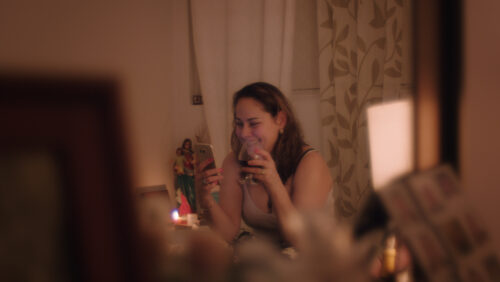 Photo: NFB
Photo: NFB
Download
Loading...
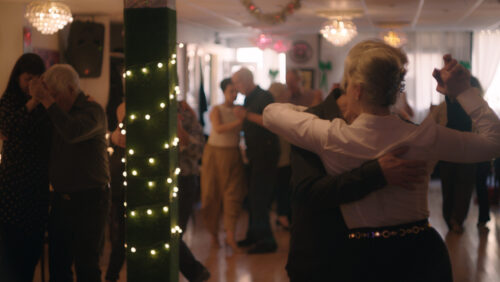 Photo: NFB
Photo: NFB
Download
Loading...
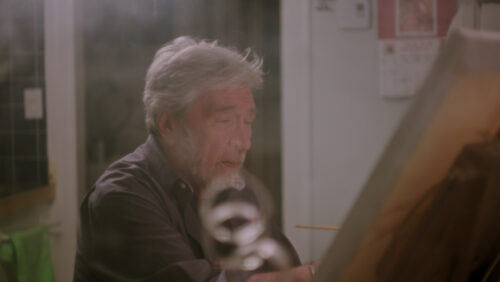 Photo: NFB
Photo: NFB
Download
Loading...
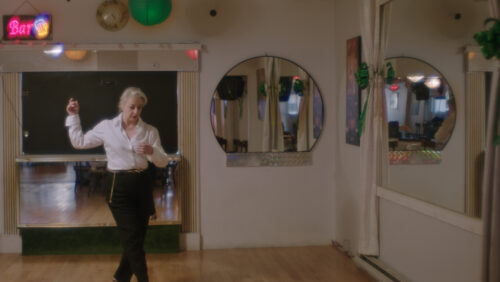 Photo: NFB
Photo: NFB
Download
Loading...
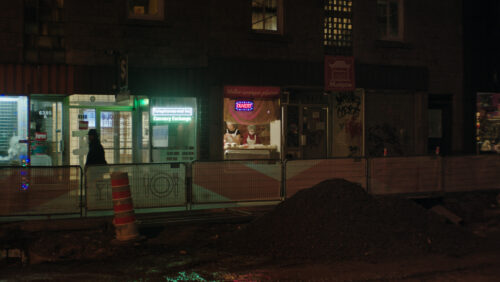 Photo: NFB
Photo: NFB
Download
Loading...
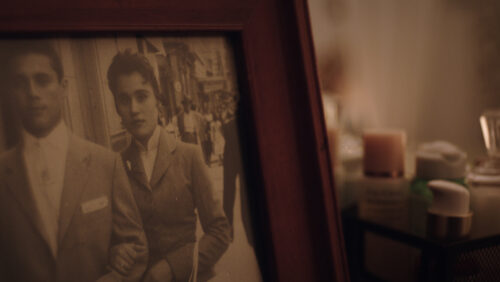 Photo: NFB
Photo: NFB
Download
Loading...
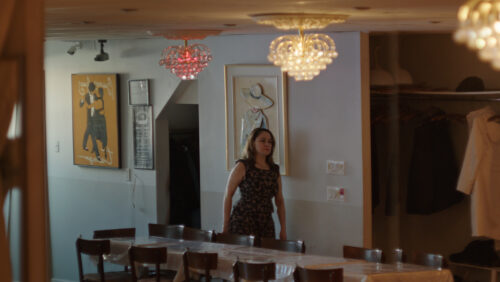 Photo: NFB
Photo: NFB
Download
Loading...
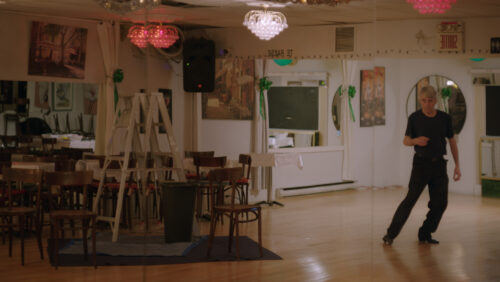 Photo: NFB
Photo: NFB
Download
Team
Rosana Matecki
Writer, Director
Photo
Photo : Fernando Bracho-Bracho
Kat Baulu
Producer
Photo
Photo : NFB
Ariel Nasr
Producer
Photo
Photo : Kiana Hayeri
Annette Clarke
Executive Producer
Photo
Photo : Dave Howells
Credits
A Film by
Rosana Matecki
Featuring
Magaly Zuleta and Juan C. Raggo
Written and Directed by
Rosana Matecki
Narration by
Rosana Matecki
Director of Photography
Glauco Bermudez
Editor
Lucas Villegas
Sound Design
Sacha Ratcliffe
Story Consultant
Ricardo Acosta Fernandez
Production Manager
Angie Pepper O’Bomsawin
Foley Artist
Karla Baumgardner
Original Music by
Denis Plante
Musicians
Alain Baril Clarinet
Charles Papasoff Sideline
Denis Plante Bandoneon
Recording Facility
Guy Bergeron, Québec
Additional Music
“EXPATRIADOS”
Music and lyrics by Denis Plante
“AMERICA”
Music and lyrics by Denis Plante
Sound Recordist
Mélanie Gauthier
First Assistant Director
Karina Garcia Casanova
First Assistant Camera
Steven Turcotte
Playback Operator
Paul Montpetit
Data Wrangler
Patrick Biron
Dance Consultant
Daniel Côté
On-Line
Yannick Carrier
Graphic Design & Titles
Jacques Bertrand Simard
Digital Editing Technicians
Pierre Dupont
Marie-Josée Gourde
Patrick Trahan
Sound Technician
Bernard Belley
Foley & Narration recording
Geoffrey Mitchell
Re-Recording
Jean Paul Vialard
Technical Coordinators
Daniel Lord
Christopher MacIntosh
Marketing Manager
Judith Lessard-Bérubé
Marketing Coordinator
Emilie Ryan
Thanks to
Salon de Tango Tangueria
Mannon Binette
Jacques Vachet
Fruiterie ValMont
Eric Talbot Chalifoux
Marylou Lafortune
Shane Macdonnell
Danae Elon
Michelle van Beusekom
Participants – Amateur Dancers
Cécile Arbaud
Rock Bergeron
Nicole Bossard
Diane Bouchard
Lina Boutin
Marilyn Bronstein
André Carrière
Catherine Cellier
Annie Chenard
Manon Chouinard
Arlene Cote
Gerard Cotnoir
Leonor Daigneault
Edmundo Darcourt
Suzanne Desbiens
Rosanne Deslandes
Michel Dufour
Marie-Josée Dupuis
Yves Erard
Rodolphe Fortier
Beatriz Gomez
Roger Gosselin
Sylvie Gravel
Sorin Kransdorf
Carole Kucharski
Madeleine Leduc
Richard Lepage
Danielle Marceau
Vincent Marchione
Sylvie Martel
Paul Montpetit
Ann Moses
Julien McDuff
John Newhouse
Dennis O’Sullivan
Louise Poissant
Daniel Rochette
Philip Shinnich
Rachid Badri Talih
Fanny Thiffault
Nicolas Van Schendel
Anne Vedduet
Maureen Zappa
Legal Counsel
Christian Pitchen
Production Coordinator
Christine Williams
Senior Production Coordinator
Cheryl Murgatroyd
Production Supervisor
Roz Power
Studio Administrator
Leslie Anne Poyntz
Producers
Kat Baulu
Ariel Nasr
Executive Producer
Annette Clarke
Part of the REIMAGINING MY QUÉBEC shorts series
SATURDAY NIGHT
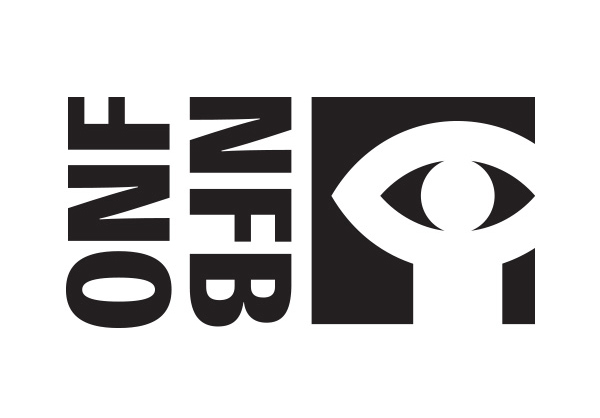
NFB.CA
National Film Board of Canada
Quebec & Atlantic Centre
© 2021 National Film Board of Canada
Media Relations
-
About the NFB
Founded in 1939, the National Film Board of Canada (NFB) is a one-of-a-kind producer, co-producer and distributor of engaging, relevant and innovative documentary and animated films. As a talent incubator, it is one of the world’s leading creative centres. The NFB has enabled Canadians to tell and hear each other’s stories for over eight decades, and its films are a reliable and accessible educational resource. The NFB is also recognized around the world for its expertise in preservation and conservation, and for its rich and vibrant collection of works, which form a pillar of Canada’s cultural heritage. To date, the NFB has produced more than 14,000 works, 7,000 of which can be streamed free of charge at nfb.ca. The NFB and its productions and co-productions have earned over 7,000 awards, including 11 Oscars and an Honorary Academy Award for overall excellence in cinema.